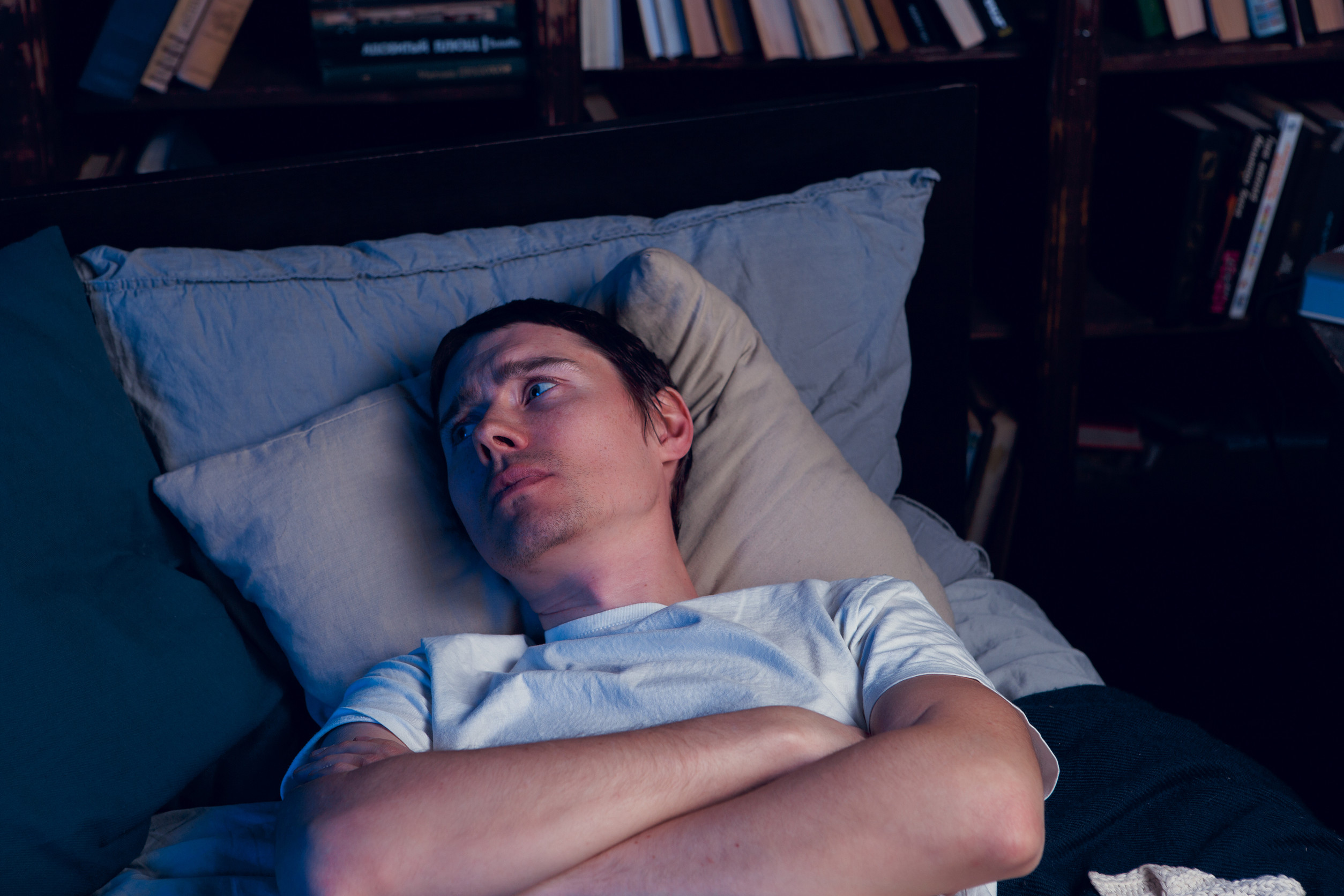If you’re lying in bed every night staring at the ceiling, your diet could be more to blame than your stress or screen time. It turns out some common foods can seriously sabotage your sleep, even if they seem innocent. What you eat before bed doesn’t just affect your digestion; it can also mess with your brain chemistry, body temperature, and ability to wind down. The worst part? Many of these foods that affect sleep are ones people reach for without thinking. Before you grab another “light snack” at 9 p.m., here are 8 hidden culprits that might be wrecking your rest.
1. Dark Chocolate
While dark chocolate is packed with antioxidants and often seen as a “healthier” treat, it’s not a friend to your sleep schedule. That’s because it contains caffeine—sometimes just as much as a cup of tea. On top of that, it also contains theobromine, a stimulant that can increase heart rate and delay sleep. Even a small square before bed can keep your brain more alert than relaxed. If you need something sweet at night, try fruit or a caffeine-free dessert instead.
2. Tomato-Based Sauces

Image Source: 123rf.com
Spaghetti night might be comforting, but if you’re having it late, those tomatoes could be causing trouble. Tomato-based sauces are highly acidic, which can trigger acid reflux or heartburn, especially when you lie down shortly after eating. This kind of discomfort often sneaks up after bedtime and can easily disrupt deep sleep. Even if you don’t feel full-on heartburn, subtle indigestion can make you restless. If you love pasta, try it earlier in the evening with a lighter, less acidic sauce.
3. Ice Cream
That post-dinner scoop may be your go-to comfort food, but it’s loaded with sugar and fat—two ingredients that can interfere with melatonin production. Sugar can cause blood sugar spikes and crashes during the night, leading to disrupted sleep and even nightmares. The fat content takes longer to digest, which means your body stays active trying to process it while you’re trying to rest. Add in dairy, which can cause bloating for some people, and it’s a recipe for poor sleep. Save ice cream for earlier in the day if you must indulge.
4. Spicy Foods
Hot wings, chili, or a late-night taco run may seem like a good idea until you’re wide awake at 2 a.m. Spicy foods raise your body temperature, which can interfere with your body’s natural cool-down process that helps signal bedtime. They also irritate the digestive system, which can lead to discomfort or even sweating during the night. For people prone to heartburn, spicy meals are a double whammy. Keep the heat for lunch, not bedtime.
5. Cheese
Cheese lovers, beware: that late-night grilled cheese or cheese board can come with consequences. Cheese is rich in tyramine, an amino acid that triggers the release of norepinephrine, a hormone that boosts brain activity and alertness. In other words, your brain gets revved up at exactly the wrong time. Hard cheeses like cheddar, Gouda, or Parmesan are particularly high in tyramine. If you’re hungry before bed, opt for a banana or a few almonds instead.
6. Soda and Energy Drinks
It might sound obvious that energy drinks aren’t good before bed, but even some sodas can sneakily ruin your sleep. Many soft drinks contain both caffeine and a high dose of sugar—two ingredients that stimulate the brain rather than settle it. Even caffeine-free sodas can still cause blood sugar spikes and mess with your body’s circadian rhythm. Don’t let a cold bubbly drink fool you into thinking it’s harmless. When thirst strikes, stick with water or herbal tea.
7. Red Meat
A big steak dinner can leave you feeling full and satisfied, but it also takes your body a long time to break it down. Red meat is high in protein and fat, which slows digestion and keeps your system active when it should be winding down. This process can cause discomfort, restlessness, and even disrupt your REM sleep cycles. It doesn’t mean you can’t enjoy red meat—but try to have it for lunch or an early dinner. Heavy meals and sleep just don’t mix.
8. Alcohol

Image Source: 123rf.com
It’s a common myth that alcohol helps you sleep, but in reality, it does the opposite. While a nightcap may make you feel drowsy, alcohol interferes with your sleep cycles, especially REM sleep, which is essential for memory and mood. It can also lead to frequent wake-ups, dehydration, and bathroom trips. You might fall asleep fast, but you won’t stay asleep or feel rested in the morning. If you’re winding down, try sparkling water with lime instead.
Rethink the Snack That’s Ruining Your Sleep
Sleep isn’t just about shutting your eyes—it’s about setting the stage, and what you eat plays a huge role in that. The foods that affect sleep the most often seem innocent, but they quietly mess with your body’s ability to truly rest. Swapping out these hidden culprits for lighter, more sleep-friendly options could be the key to waking up refreshed instead of groggy. Your late-night cravings don’t have to cost you quality shut-eye. Choose wisely and let your food help you rest, not fight it.
Have you ever noticed a food that completely wrecked your sleep? Share your experience in the comments—we’d love to know what surprised you most!
Read More
10 Ingredients Banned in Europe But Still in American Foods
Here’s What Your Relationship With Food Tells You About Your Trauma


